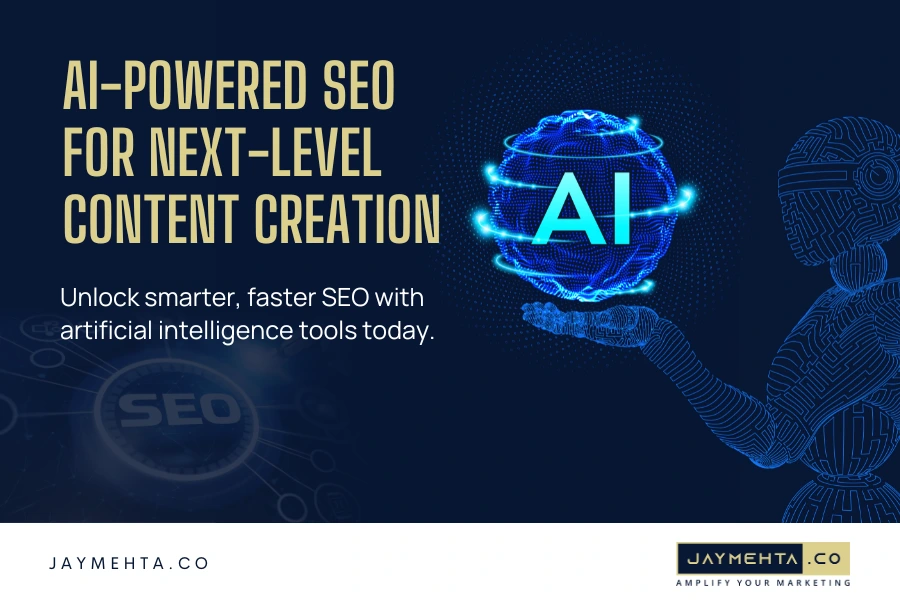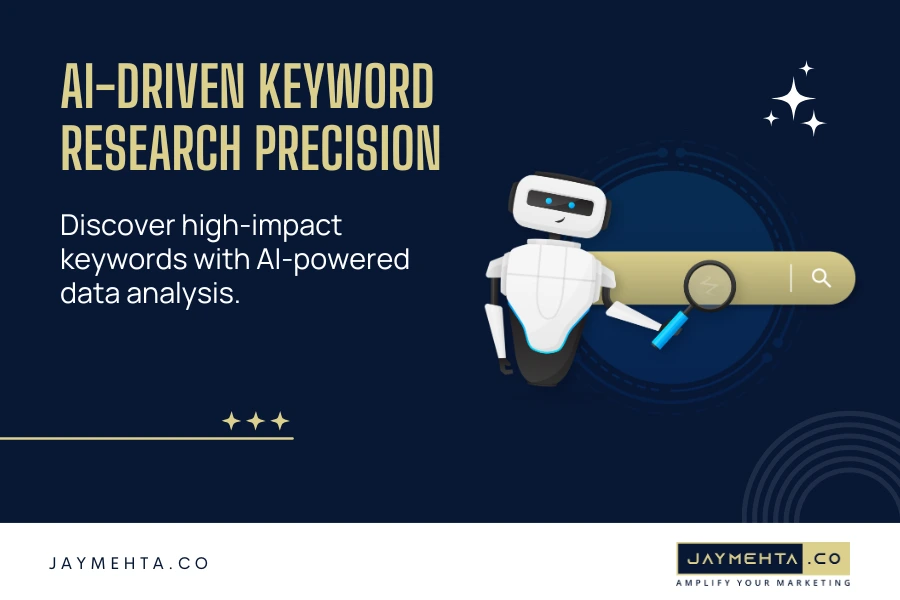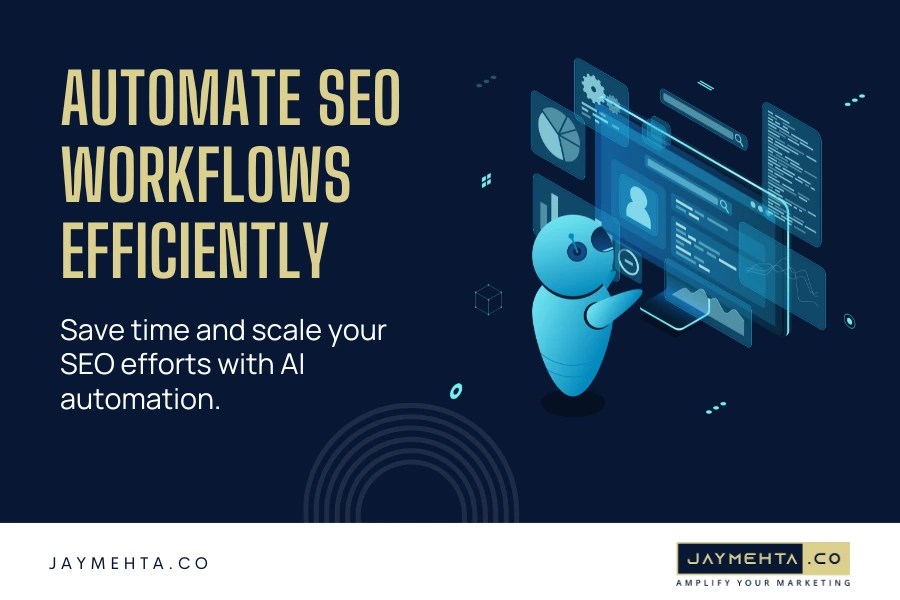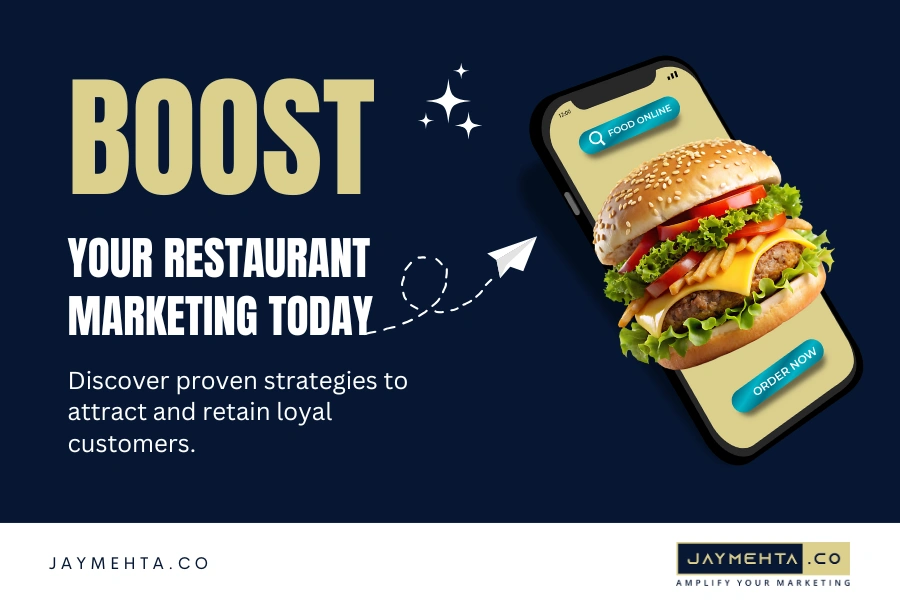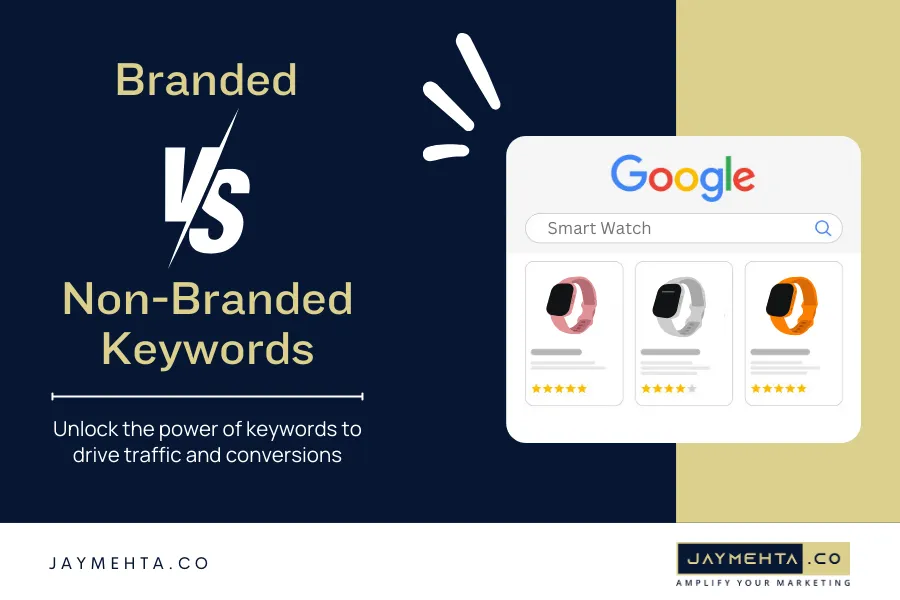In the ever-changing landscape of digital marketing, mastering SEO is crucial for any business or content creator aiming to grow their online presence. But traditional SEO methods, while effective, can be time-consuming and sometimes imprecise. Enter AI-powered SEO—a revolutionary approach that leverages artificial intelligence to supercharge your content creation and search engine rankings.
AI in SEO is transforming how marketers understand user behavior, research keywords, create content, and optimize websites. It uses machine learning algorithms to analyze vast amounts of data, predict trends, and automate repetitive tasks. This means faster, smarter, and more effective SEO strategies that help your content stand out in search engine results.
Whether you’re a solo blogger or part of an AI SEO agency, understanding the core principles of AI-powered SEO is essential. This blog post will walk you through five fundamental principles that can take your content creation to the next level, helping you attract more traffic, engage your audience better, and ultimately boost conversions.
Master User Intent with AI Insights
One of the biggest challenges in SEO is truly understanding what your audience is searching for and why. User intent goes beyond just keywords—it’s about grasping the purpose behind a search query. Are users looking to learn something? Are they ready to buy? Or are they simply browsing?
AI-powered SEO tools analyze millions of search queries and user behaviors to uncover this intent with incredible accuracy. By categorizing searches into types like informational, navigational, transactional, or commercial investigation, AI helps you create content that matches exactly what users want.
For example, if AI detects that most users searching for “best smartphones 2025” want detailed comparisons and reviews, your content can be tailored to provide in-depth analysis, specs, pros and cons, and buying guides. This precision improves user satisfaction and increases the likelihood of your content ranking higher.
Moreover, AI continuously updates its understanding of user intent as trends evolve, ensuring your content stays relevant over time. This dynamic insight is invaluable for creating content that truly resonates and drives engagement.
Optimize Keyword Research with AI Precision
Keyword research is the backbone of SEO, but it can be overwhelming and often incomplete when done manually. AI-powered SEO tools revolutionize this process by analyzing massive datasets to identify not just popular keywords, but also valuable long-tail and semantically related keywords.
These AI tools consider multiple factors simultaneously—search volume, keyword difficulty, user intent, and competitor strategies—to recommend the most effective keywords for your content. This means you spend less time guessing and more time targeting phrases that actually convert.
For example, instead of focusing only on the broad keyword “digital marketing,” AI might suggest related phrases like “digital marketing strategies for startups” or “2025 digital marketing trends,” which are easier to rank for and attract more qualified traffic.
Additionally, AI tools identify content gaps by analyzing competitor websites, revealing opportunities where you can create unique content that fills unmet needs. This strategic approach ensures your keyword targeting is both comprehensive and competitive.
Create High-Quality Content Faster with AI Assistance
Producing consistent, high-quality content is one of the biggest hurdles for marketers and businesses. AI-powered writing assistants are changing the game by helping you generate content faster without sacrificing quality.
These tools use natural language processing (NLP) to understand context and create human-like text that flows naturally. They can generate outlines, suggest headings, write drafts, and even optimize content for SEO by recommending keyword placements and readability improvements.
For example, if you’re writing a blog post about “artificial intelligence search optimization,” AI can suggest an engaging introduction, relevant subtopics, and even help you craft compelling calls to action. This helps you overcome writer’s block and maintain a consistent publishing schedule.
However, it’s important to remember that AI-generated content should be reviewed and refined by humans. This ensures your content remains authentic, aligns with your brand voice, and avoids generic or repetitive phrasing. When combined, AI and human creativity produce content that is both efficient and engaging.
Related Blog: How to Create a Content Marketing Strategy
Enhance Content Optimization Using AI Analytics
Publishing content is just the first step. To truly succeed in SEO, you need to continually optimize your content based on performance data. AI-powered SEO analytics tools provide deep insights into how your content is performing and what improvements are needed.
These tools analyze keyword usage, semantic relevance, readability scores, and user engagement metrics such as average time on page and bounce rate. They then offer actionable recommendations like adding related keywords, improving meta descriptions, or restructuring paragraphs for better clarity.
For instance, if AI detects that your article on “ai seo services” has low engagement, it might suggest adding FAQs or breaking up long paragraphs to improve readability. Some advanced platforms even simulate how these changes could impact your rankings and traffic, allowing you to make data-driven decisions.
This continuous optimization cycle ensures your content stays fresh, relevant, and aligned with the latest search engine algorithms, helping you maintain and improve your rankings over time.
Automate Workflow for Scalable SEO Success
Scaling SEO efforts manually is challenging and often inefficient. AI-powered SEO platforms automate many repetitive tasks, allowing your team to focus on strategy, creativity, and growth.
Automation can handle keyword research, content generation, internal linking, meta tag optimization, and performance reporting. For example, AI can automatically suggest internal links between related articles on your website, improving site structure and SEO without manual effort.
This automation reduces the time spent on routine tasks by up to 80%, which is especially valuable for agencies or businesses managing multiple websites or large content volumes. It also ensures consistency in SEO practices, which is critical for building domain authority and attracting steady organic traffic.
By integrating AI automation into your SEO workflow, you enable scalable, efficient content marketing that can adapt quickly to changing trends and search engine updates.
Leverage Schema Markup for Enhanced Search Visibility
Schema markup is a form of structured data that helps search engines better understand the content and context of your pages. Proper use of schema can lead to enhanced search results like rich snippets, knowledge panels, and FAQ boxes, which improve click-through rates.
AI-powered SEO tools can automatically generate and implement schema markup based on your content type—whether it’s articles, products, events, or FAQs. This automation saves time and reduces errors compared to manual coding.
For example, a blog post about “artificial intelligence in SEO” can include FAQ schema that displays questions and answers directly in search results, making your listing more attractive and informative.
Using schema markup is a smart AI-powered SEO tactic that boosts your visibility and drives more qualified traffic to your site.
Optimize for Voice and Mobile Search
Voice search and mobile browsing are rapidly growing trends that significantly impact SEO. AI helps optimize your content for these platforms by analyzing natural language queries and mobile user behavior.
Voice searches tend to be longer, more conversational, and question-based. AI tools help you adjust your content to answer these queries clearly and naturally, improving your chances of appearing in voice search results.
On the mobile front, AI ensures your website is mobile-friendly by optimizing page load speed, responsive design, and user experience. Since Google uses mobile-first indexing, a mobile-optimized site is essential for ranking well.
By embracing AI-driven voice and mobile optimization, you make your content accessible to a broader audience and future-proof your SEO strategy.
Use AI to Build Strong Internal and External Links
Link building remains a critical factor in SEO success. AI tools analyze your website’s structure and your competitors’ backlink profiles to identify the best internal and external linking opportunities.
For internal links, AI suggests relevant pages to link together, improving site navigation and distributing page authority effectively. For external links, AI identifies high-quality, authoritative websites for backlink opportunities and can automate outreach campaigns, making link building more efficient.
Strategic linking powered by AI not only improves your site’s credibility and search rankings but also enhances user experience by guiding visitors through your content logically.
Monitor SEO Performance with AI-Powered Analytics
Tracking your SEO performance is essential for understanding what’s working and where improvements are needed. AI-powered analytics platforms provide real-time, comprehensive dashboards that visualize keyword rankings, traffic sources, user behavior, and conversion metrics.
These platforms use predictive analytics to forecast future trends and potential ranking changes, enabling you to adjust your SEO strategy proactively.
For example, if AI detects a drop in organic traffic for a key keyword, it can alert you to investigate and optimize the affected content quickly. This proactive approach helps maintain your competitive edge and maximize ROI.
Partner with an AI SEO Agency for Expert Guidance
While AI tools are powerful, implementing an effective AI-powered SEO strategy can be complex. Partnering with an experienced AI SEO agency can help you navigate this landscape with confidence.
Agencies like Jay Mehta Digital specialize in combining AI technology with proven SEO expertise. They tailor strategies to your industry, audience, and goals, ensuring you get the maximum benefit from AI-powered SEO.
Working with an AI SEO agency accelerates your success, saves time, and provides access to cutting-edge tools and insights that might be difficult to manage alone.
Conclusion: Unlock the Power of AI-Powered SEO Today
AI-powered SEO is no longer just an option—it’s a necessity for anyone serious about dominating search rankings and creating impactful content. By mastering user intent, optimizing keyword research with AI precision, accelerating content creation, continuously optimizing with AI analytics, and automating workflows, you position your brand for sustainable growth.
Incorporating schema markup, optimizing for voice and mobile search, building strong links, and monitoring performance with AI tools further enhance your SEO strategy. And when you need expert guidance, partnering with a trusted AI SEO agency like Jay Mehta Digital ensures you stay ahead of the curve.
Are you ready to revolutionize your SEO strategy with AI? Embrace these principles today and watch your content soar in search rankings, driving more traffic, engagement, and conversions.
FAQs
What is AI-powered SEO?
AI-powered SEO uses artificial intelligence to optimize websites and content for better search engine rankings by analyzing data and automating tasks.
How does AI improve keyword research?
AI analyzes large datasets to find high-potential keywords, including long-tail and semantic variations, making research more precise and efficient.
Can AI create SEO-friendly content?
Yes, AI tools generate optimized content drafts, outlines, and suggestions that align with SEO best practices.
Is human editing necessary with AI content?
Absolutely. Human oversight ensures content is authentic, engaging, and free from errors or generic phrasing.
How does AI help with content optimization?
AI evaluates readability, keyword usage, and semantic relevance, offering actionable improvements to boost SEO performance.
What are schema markups and why use AI for them?
Schema markups are structured data that help search engines understand content. AI automates their creation and implementation for better visibility.
How does AI support voice search optimization?
AI analyzes conversational queries and adjusts content to be more natural and voice-friendly.
Can AI automate SEO workflows?
Yes, AI automates repetitive SEO tasks, improving efficiency and consistency in content production.
Should businesses hire an AI SEO agency?
Hiring an agency can provide expertise and accelerate AI-powered SEO implementation tailored to your needs.

